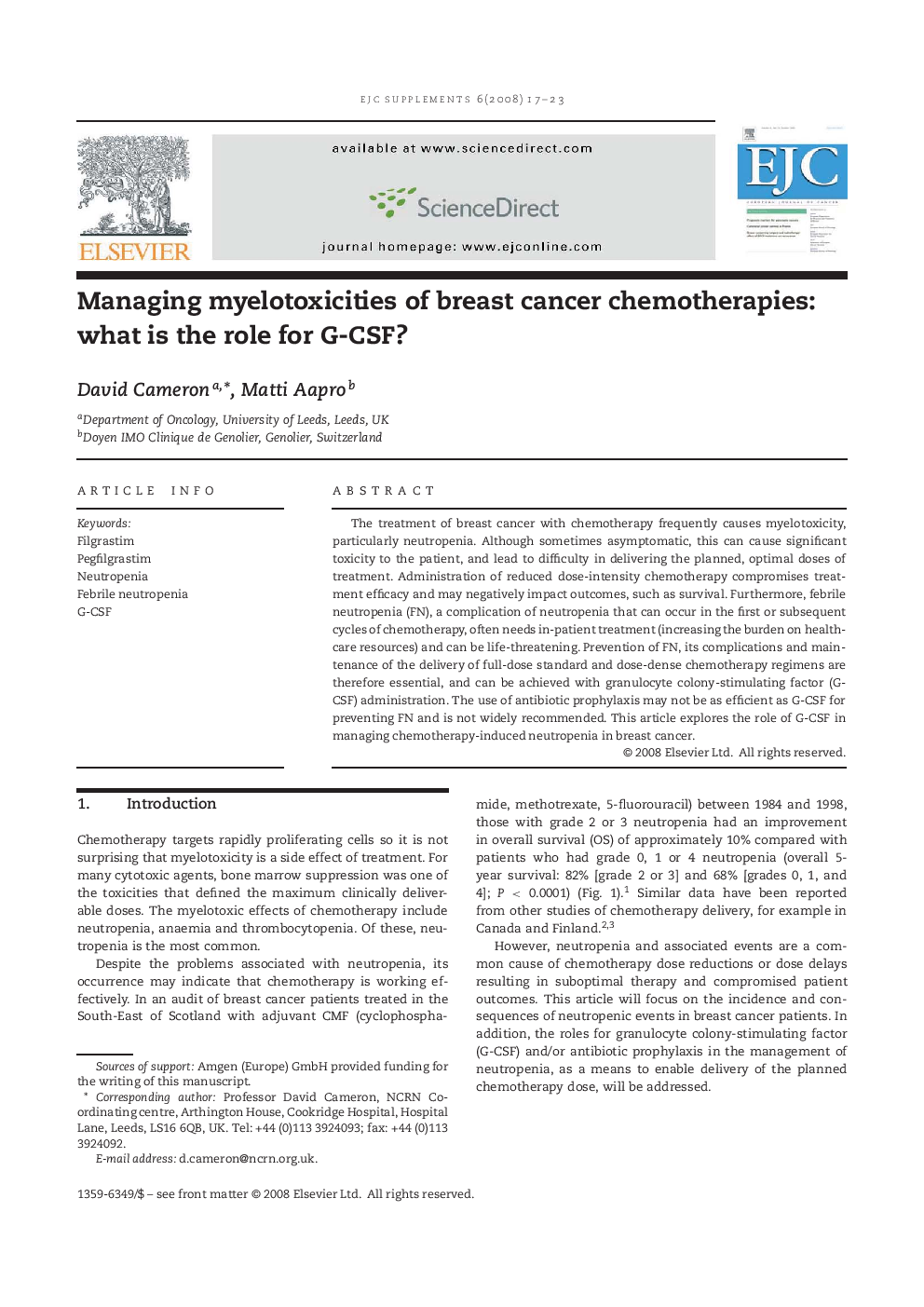| Article ID | Journal | Published Year | Pages | File Type |
|---|---|---|---|---|
| 2128999 | European Journal of Cancer Supplements | 2008 | 7 Pages |
Abstract
The treatment of breast cancer with chemotherapy frequently causes myelotoxicity, particularly neutropenia. Although sometimes asymptomatic, this can cause significant toxicity to the patient, and lead to difficulty in delivering the planned, optimal doses of treatment. Administration of reduced dose-intensity chemotherapy compromises treatment efficacy and may negatively impact outcomes, such as survival. Furthermore, febrile neutropenia (FN), a complication of neutropenia that can occur in the first or subsequent cycles of chemotherapy, often needs in-patient treatment (increasing the burden on healthcare resources) and can be life-threatening. Prevention of FN, its complications and maintenance of the delivery of full-dose standard and dose-dense chemotherapy regimens are therefore essential, and can be achieved with granulocyte colony-stimulating factor (GCSF) administration. The use of antibiotic prophylaxis may not be as efficient as G-CSF for preventing FN and is not widely recommended. This article explores the role of G-CSF in managing chemotherapy-induced neutropenia in breast cancer.
Related Topics
Life Sciences
Biochemistry, Genetics and Molecular Biology
Cancer Research
Authors
David Cameron, Matti Aapro,
